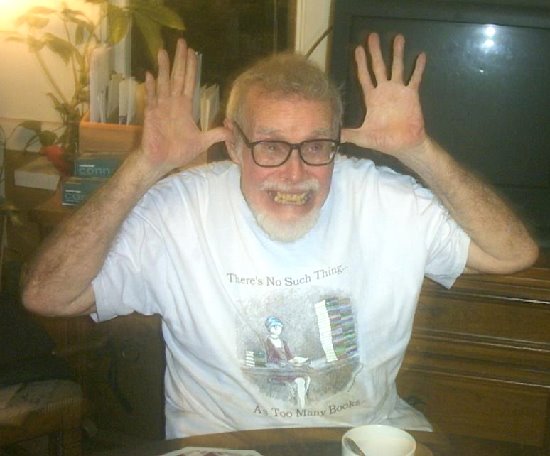
I never really understood what it involved, although I've enjoyed almost every class I've taken. Mostly, I enjoyed following the talk of the professor (whoever it may have been) with an eye out for something with which to disagree, or for some point upon which I could digress. I felt free to burst out with statements when the spirit moved me. I must have been obnoxious, but I often felt as if I were riding in some boat down a turbulent stream with a few other people, and that making sudden declarations was like commenting on the water (which we were all watching) and on the sturdiness of the boat (which some of us might have been worried about). Or, as in the still from Fellini's "La Strada" (above), I would feel I was watching a circus performer whose credentials were ultimately unknown. Since I wanted to be a circus performer too, I would have no choice but to suspend disbelief.
It turns out I'm not that great a lecturer, although I certainly could work on it if I looked upon it as a performance. But that would mean two performances per week, and my natural rhythm is, like, two (studied and contrived) performances per year. I do care about my students, though, and I e-mailed each one of them regarding their "brainstorming" notes for their first essay (a mere two-pager). The essay is to be on Kate Chopin short stories, "The Storm," and "The Story of an Hour." The main female character in each story is, according to most of the students, "cheating," and "selfish," respectively. I don't believe this is what Kate Chopin intended to convey. Have expectations for women's potential and behaviors not changed since the 1890s? I suppose not. For these young people, the 1960s never happened.
In "Deschooling Society," the late Ivan Illich wrote:
"Universal education through schooling is not feasible. It would be no more feasible if it were attempted by means of alternative institutions built on the style of present schools. Neither new attitudes of teachers toward their pupils nor the proliferation of educational hardware or software (in classroom or bedroom), nor finally the attempt to expand the pedagogue's responsibility until it engulfs his pupils' lifetimes will deliver universal education. The current search for new educational funnels must be reversed into the search for their institutional inverse: educational webs which heighten the opportunity for each one to transform each moment of his living into one of learning, sharing, and caring..."
I have always thought the position of "professor" to be rather strange, even though I fell under its hierarchical spell when I was in college. I cannot believe that the people who show up for my class don't have ways of learning without me. What I have to share with them is what I happen to be interested in, but only for my own reasons. I am supposed to be teaching them "how to write," but the formulas I have been urged to tout have never been the ones I have used in my lifetime of writing. This makes me feel divided, and sometimes a fake.
Yet still, I want them to look up to me and come to me for some sort of "advice." I don't care what about, though.




No comments:
Post a Comment